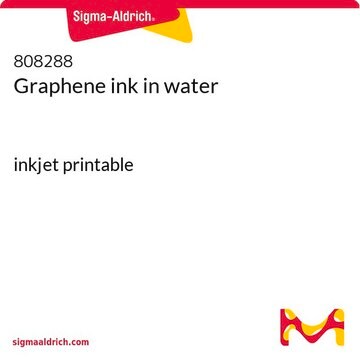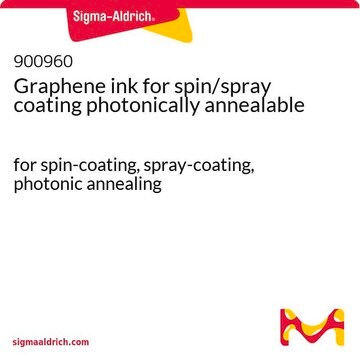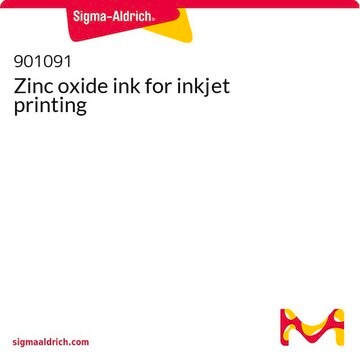901410
Hexagonal boron nitride ink
for inkjet printing
Synonym(s):
Hexagonal boron nitride dispersion, with ethyl cellulose in cyclohexanone and terpineol, hBN dispersion, hBN inkjet printable ink
About This Item
Recommended Products
Quality Level
form
dispersion
composition
Solid content, 4.4-6.4%
greener alternative product characteristics
Design for Energy Efficiency
Learn more about the Principles of Green Chemistry.
sustainability
Greener Alternative Product
color
white
particle size
≤0.3 μm
surface tension
30-35 dyn/cm
viscosity
6-15 cP (shear viscosity at 1000 s-1, 25 °C)
bp
213-218 °C (Terpineol)
Looking for similar products? Visit Product Comparison Guide
General description
Application
Legal Information
Signal Word
Danger
Hazard Statements
Precautionary Statements
Hazard Classifications
Acute Tox. 4 Dermal - Acute Tox. 4 Inhalation - Acute Tox. 4 Oral - Eye Dam. 1 - Flam. Liq. 3 - Skin Irrit. 2 - STOT SE 3
Target Organs
Respiratory system
Storage Class Code
3 - Flammable liquids
WGK
WGK 3
Flash Point(F)
115.7 °F
Flash Point(C)
46.5 °C
Regulatory Listings
Regulatory Listings are mainly provided for chemical products. Only limited information can be provided here for non-chemical products. No entry means none of the components are listed. It is the user’s obligation to ensure the safe and legal use of the product.
EU REACH Annex XVII (Restriction List)
Choose from one of the most recent versions:
Already Own This Product?
Find documentation for the products that you have recently purchased in the Document Library.
Customers Also Viewed
Articles
Recent advancements in paper-based sensing platforms offer cost-effective clinical diagnostics with microfluidic channels and colorimetric or electrochemical detection zones.
Recent advancements in paper-based sensing platforms offer cost-effective clinical diagnostics with microfluidic channels and colorimetric or electrochemical detection zones.
Recent advancements in paper-based sensing platforms offer cost-effective clinical diagnostics with microfluidic channels and colorimetric or electrochemical detection zones.
Recent advancements in paper-based sensing platforms offer cost-effective clinical diagnostics with microfluidic channels and colorimetric or electrochemical detection zones.
Our team of scientists has experience in all areas of research including Life Science, Material Science, Chemical Synthesis, Chromatography, Analytical and many others.
Contact Technical Service












